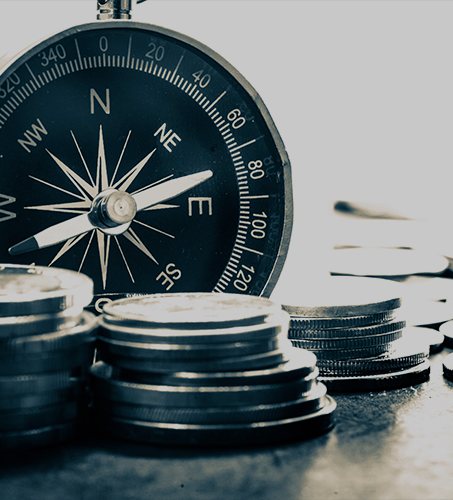COVID-19 has so far resulted in over 200,000 deaths worldwide, with confirmed cases topping 3mn (as at 27 April 2020). But, while the human cost is clear, its economic impact is yet to be fully understood. The spread of the new coronavirus is also having a profound impact on economies and stock markets globally, sending policymakers looking for effective ways to respond to the crisis.
China’s experience thus far shows that the right policies make all the difference in fighting the disease and mitigating its impact — but some of these policies come with difficult economic trade-offs. Unfortunately, success in containing the virus comes at the price of slowing economic activity, no matter whether social distancing and restricted movement are voluntary or enforced. In China’s case, for example, policymakers implemented strict mobility constraints at a national and local level which, by all indications, will see that country’s economic slowdown in 1Q20 adding significant downward pressure on growth and leaving a deep mark on GDP for the remainder of 2020.
According to the IMF’s latest global economic forecasts, it is now expecting a 3.0% YoY decline in global GDP growth for 2020, followed by a 5.8% YoY rebound for 2021. China’s growth is projected at 1.2% and 9.2% YoY in 2020 and 2021, respectively. Meanwhile, for Europe, the picture is alarming and euro area GDP growth is expected to contract by 7.5% this year and then to rebound by 4.7% in 2021. Similarly, the UK is forecast to record a 6.5% YoY growth slump for 2020, followed by a 4.0% YoY rebound in 2021. For the US, which has (along with Italy, Spain, and Portugal) been especially hard hit by the pandemic, GDP is forecast to decline 5.9% this year and then grow by 4.7% in 2021.
Globally, financial markets have responded to the pandemic with worrying volatility and March especially saw a meltdown of epic proportions, with dizzying moves in equity prices and other assets. Wall Street’s so-called “Fear Gauge” – the VIX Index – hit all-time highs, surpassing the records it set during the 2008 global financial crisis (GFC). The worldwide sell-off worsened as governments implemented lockdown measures to fight the spread of the virus. In unprecedented times, fears run high and in March investors seemed to be dumping all assets, with even gold (regarded as a safe haven), under pressure. In addition, amidst an unprecedented drop in oil demand, OPEC and Russia were unable to agree on supply cuts, starting a price war which saw Brent Crude fall 55% in March – its worst monthly drop on record. The oil price has still not recovered despite the Saudis and Russia having thrashed out a deal to cut production.
In the US, March was the worst month for stock markets since the Great Depression and all three major US stock indices (the Dow, NASDAQ, and the S&P 500) recorded major losses as stock prices plummeted. A proactive US Federal Reserve (Fed) announced two emergency rate cuts, bringing the bank borrowing rate back to near zero. The Fed has also been rolling out other emergency measures almost weekly, including relaunching large-scale asset purchases (quantitative easing). After an initial lacklustre response from the Trump administration to the pandemic, Congress eventually deployed a massive $2trn stimulus to cushion its economic blow. Since state-ordered lockdowns started in mid-March, c. 22mn people in the US have filed new jobless claims as lockdowns force most businesses to close or operate with a skeleton staff, pushing the unofficial unemployment rate to c. 15%.
Elsewhere, measures announced by other countries to support their economies included: French President Emmanuel Macron stating that his government would guarantee EUR300bn in loans and pledging that no French company would be allowed to collapse; and Italy, Germany, Japan, and Spain introducing hundreds of billions of dollars in government relief.
The JSE also ended March in the red, with the FTSE JSE All Share Index closing 9.7% lower on 12 March – its worst daily drop since the 1997 market crash. This, as fears around COVID-19 and the impact of measures taken by various governments to curb the spread of the virus swept across world markets. Local financial counters were the worst hit, with the Fini-15 plummeting over 30% in March. SA listed property was a poor performing sector going into COVID-19, but the lockdown of most stores servicing the economy has had a direct impact on income streams for rent-paying tenants and will lead to instances where landlords lose rental income. This could result in a reduction in asset valuation of some kind but will more likely lead to property transactions drying up – a complete lack of liquidity in what was already an illiquid market to start with. Relentless foreign selling also saw the rand reach new record lows vs the dollar, even breaching the R19/$1 level.
To assist the SA economy against the impact of COVID-19, President Cyril Ramaphosa initially announced measures such as a temporary employee relief scheme to help companies in distress pay their workers (a new Solidarity Fund), and the Industrial Development Corporation and department of trade and industry putting together a R3bn-plus package in industrial funding for vulnerable firms. Then on 21 April, the president unveiled a further R500bn (c. $26bn) package to boost the country’s ailing economy and to support those who’ve been worst affected by the pandemic – the plan will be funded by reprioritising R130bn of expenditure from existing budgets and borrowing from both domestic and international lenders.In a further attempt to cushion the impact of the COVID-19 induced lockdown on consumers or businesses who have debt, the SA Reserve Bank (SARB) has cut the repo rate twice (by 1 ppt each) since the lockdown started – bringing it down to 4.25%.



